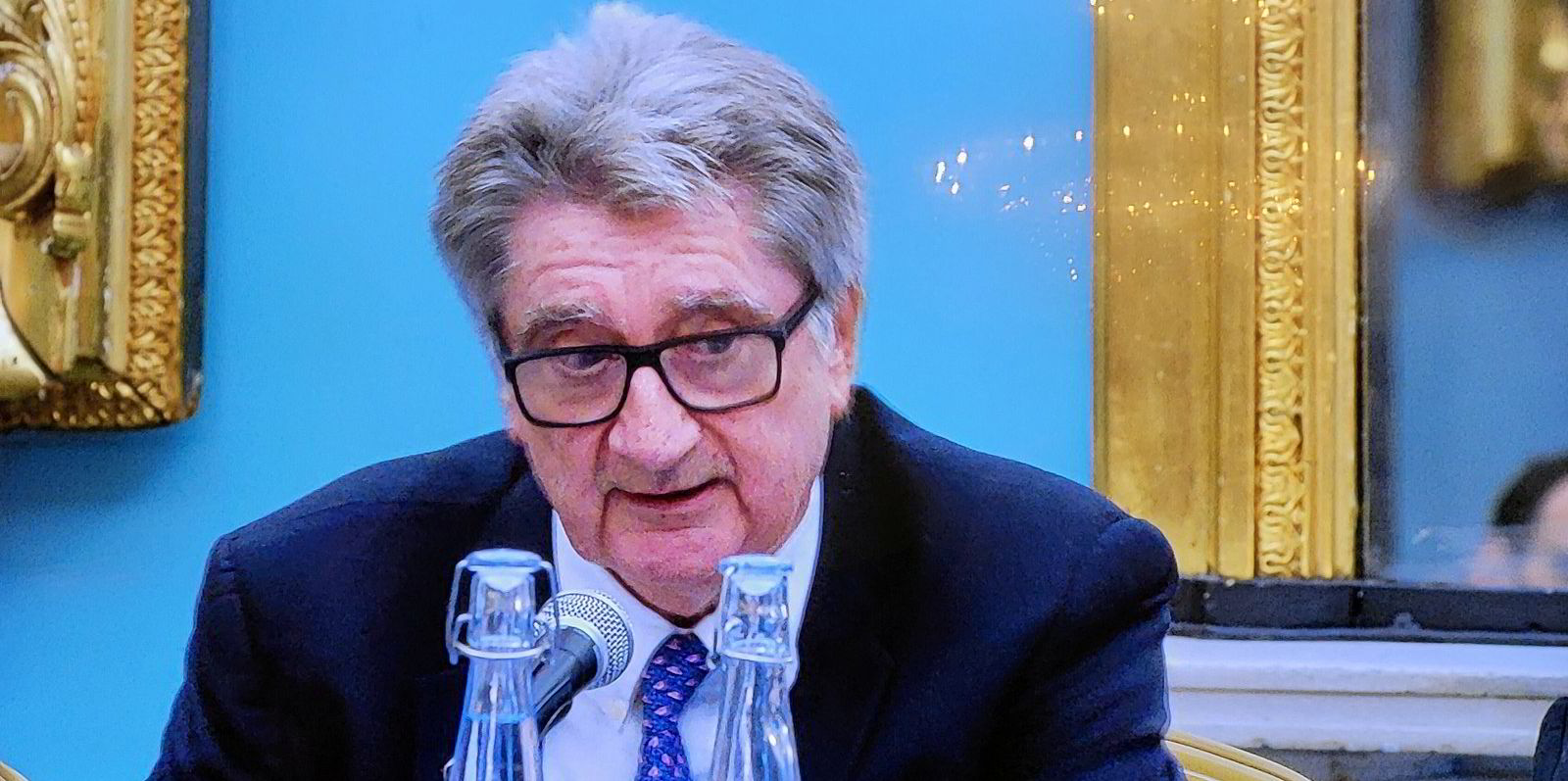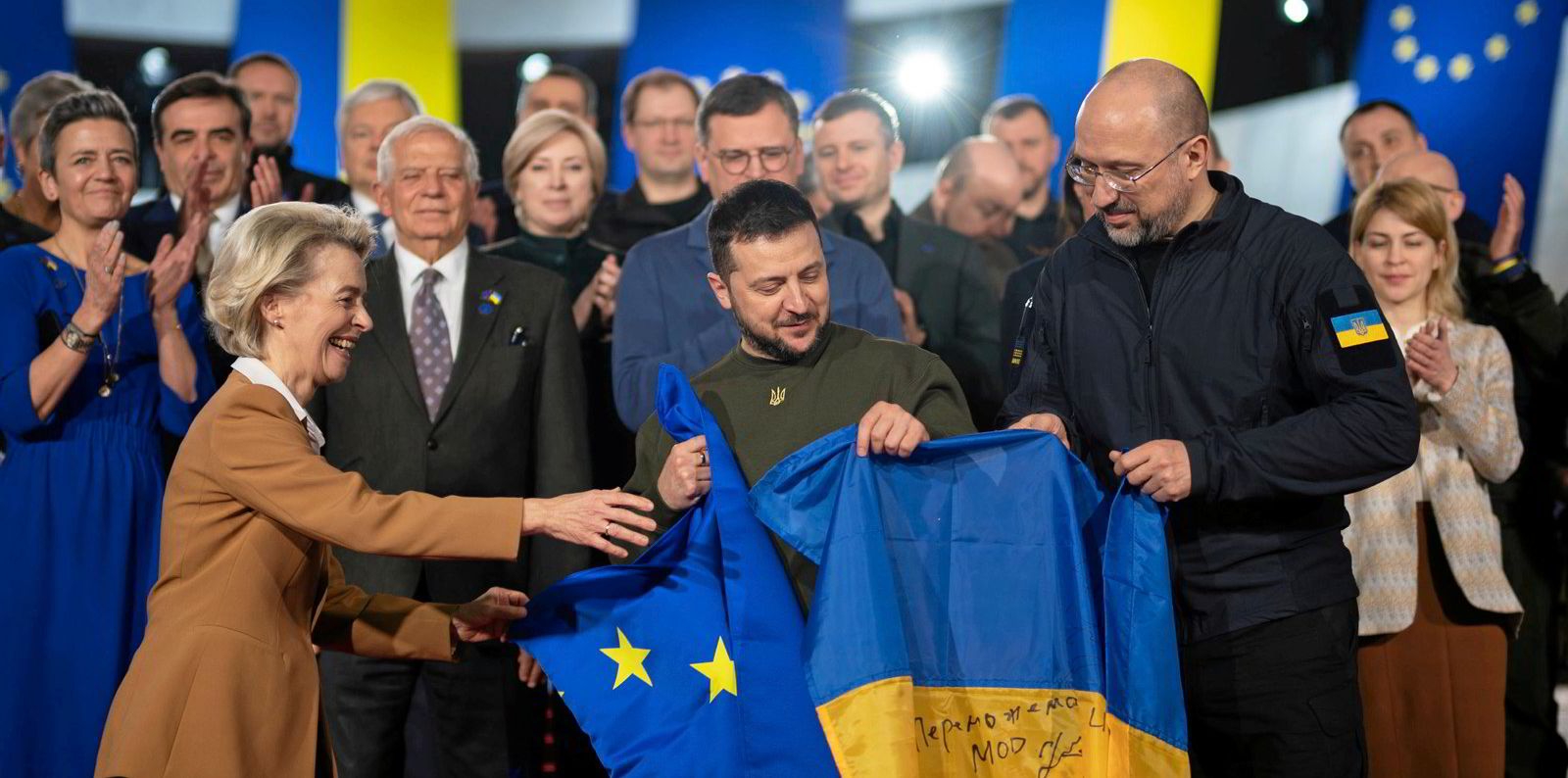Shipping has lost its moral compass by selling older tonnage in the tacit knowledge that the ships are heading to join the so-called “dark fleet” hauling Russian crude, said shipbroker Richard Fulford-Smith.
The Affinity (Shipping) managing partner told a Capital Link conference in London that greed had trumped morality, with shipping standing accused of “having Ukrainian blood on its hands”.
Fulford-Smith’s trenchant comments follow those of Clarksons chief executive Andi Case, who said in March that he hoped people who flouted sanctions rules had a “lot of sleepless nights” and woke up to a knock on the door.
Fulford-Smith’s comments highlight the split within the shipping and broking communities that have seen some companies sidestep all Russian trade while others have taken advantage of the bumper profits on offer from the upheaval caused by the invasion of Russia.
The secondhand market tanker surged in 2022 based on sales of elderly tankers at inflated prices snapped up to service the Russia trade and secure premium freight rates. Some brokers shifted from traditional centres to Dubai in apparent efforts to tap the market and avoid the reach of Western sanctions enforcers.
But some brokers and owners have told TradeWinds that the deals were subject to compliance checks. Sections of the industry had benefited from the competing interests of rules imposed by the US, UK and European Union policymakers that wanted to punish Russia but keep its oil flowing.
“Sanctions don’t appear to me to mean very much to large parts of our community. That’s why the dark fleet has grown,” said Fulford-Smith at the session.
He estimated the fleet hauling sanctioned oil at nearly 600 vessels, many with insufficient insurance cover, lacking regulatory scrutiny and with an older age profile than the mainstream fleet.
“Greed has come ahead of moral compass,” he said. “We’re waiting for the accident — and it will happen.
Pretty ashamed
“We’re pretty ashamed by the state of our industry, to be frank with you.
“The tanker owners that indulge in these trades are perfectly aware of what they are doing but don’t think they are going to be caught.
“We need to have much better enforcement.”
Many Western owners and insurers have pulled out of the trade after Russian crude in July exceeded a price cap imposed by the G7 group of nations aimed at limiting Kremlin profits.
The sanctions rules allowed Western involvement in moving Russian oil to countries outside of the EU but only if it was sold for less than $60 a barrel.
Greed has come ahead of moral compass
Richard Fulford-Smith
Fulford-Smith was speaking on a panel that included sanctions enforcers from the UK, EU and US. No shipowner or insurer has so far been hit by any enforcement penalties but the regulators said that gathering evidence for cases for sanctions breaches was a slow process.
Claire McCleskey, assistant director of sanctions compliance at the Office of Foreign Assets Control, said the agency’s top priority remained targeting the Russian military-industrial complex.
“We’ve been very clear that anyone who evades the price cap should be subject to US enforcement… nothing has changed at all about that,” she said.
Read more
- Russia sends non-ice class capesize bulker and suezmax tankers into the Arctic
- Tsakos Shipping’s Andreas Bisbas claims Lloyd’s of London insurance is ‘no longer sacrosanct’
- Insurers lament as ‘smart’ sanctions fracture world trade
- Comment: Shipping’s place in post-Brexit ‘Global Britain’ is under strain
- Ukraine, Russia pour cold water on UN efforts to revive grain deal
- Oil sale already approved in US forfeiture action against Suez Rajan cargo




